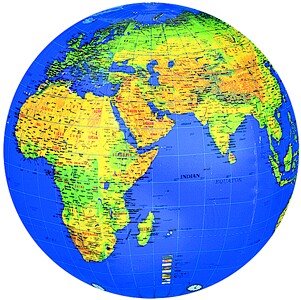
World Map by Population
Think the decline and fall of the professional travel writing industry is a sad, sad thing? Then consider the crisis now facing professional photographers, who have been making a respectable living via photo stock agencies for many decades. Looks like the photo stock agency as business model is almost on it's last legs.
After several weeks of back-and-forth, Menashe emailed Harmel to say that, regretfully, the deal was off. “I discovered a stock photo site called iStockphoto,” she wrote, “which has images at very affordable prices.” That was an understatement. The same day, Menashe licensed 56 pictures through iStockphoto – for about $1 each.
iStockphoto, which grew out of a free image-sharing exchange used by a group of graphic designers, had undercut Harmel by more than 99 percent. How? By creating a marketplace for the work of amateur photographers – homemakers, students, engineers, dancers. There are now about 22,000 contributors to the site, which charges between $1 and $5 per basic image. (Very large, high-resolution pictures can cost up to $40.) Unlike professionals, iStockers don’t need to clear $130,000 a year from their photos just to break even; an extra $130 does just fine. “I negotiate my rate all the time,” Harmel says. “But how can I compete with a dollar?”
He can’t, of course. For Harmel, the harsh economics lesson was clear: The product Harmel offers is no longer scarce. Professional-grade cameras now cost less than $1,000. With a computer and a copy of Photoshop, even entry-level enthusiasts can create photographs rivaling those by professionals like Harmel. Add the Internet and powerful search technology, and sharing these images with the world becomes simple.
Wired Link






